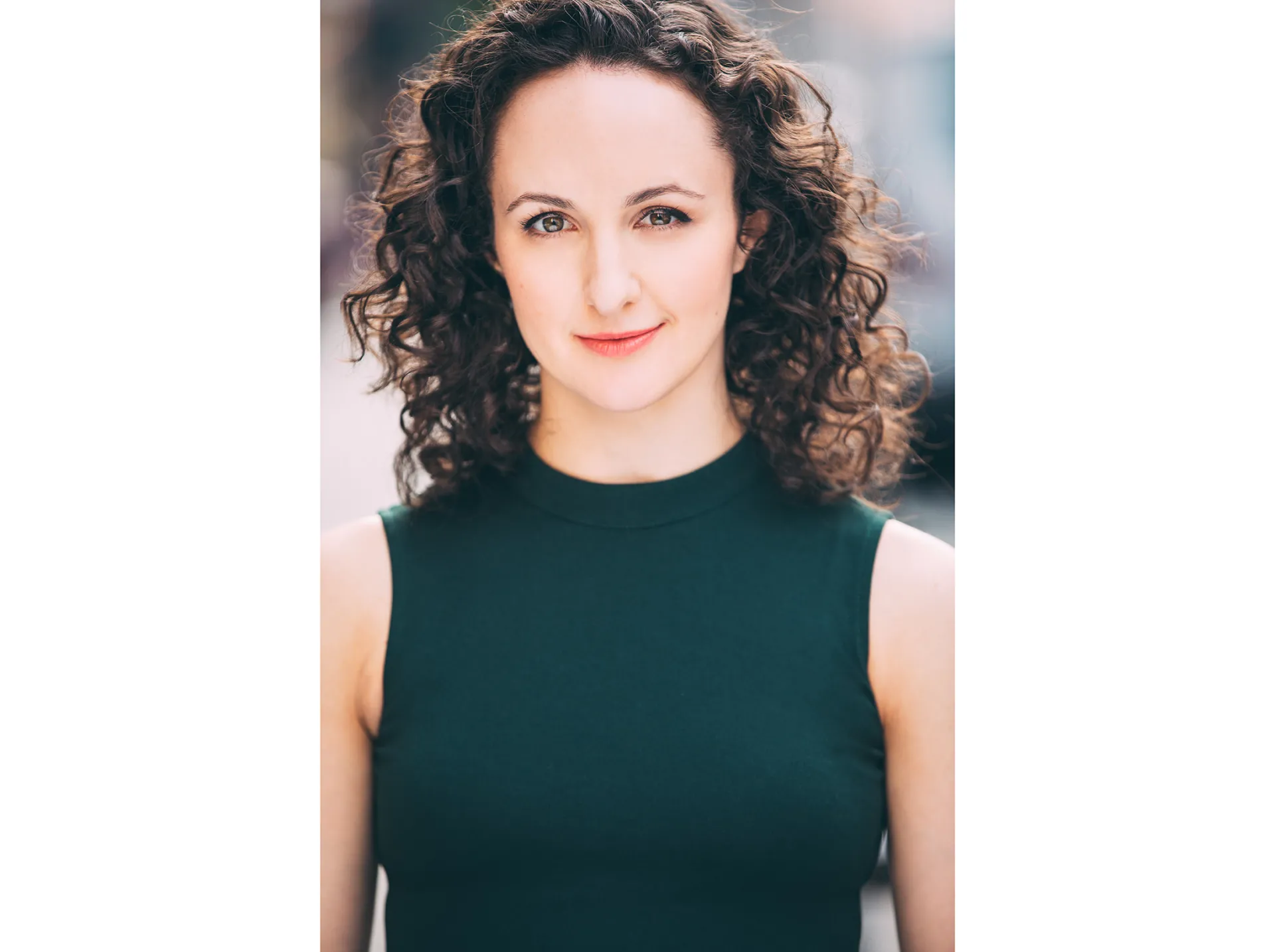This past year the winsome face of Kate Hamill ’05 looked out of full-page ads in Broadway’s Playbill — a sure sign that this actor-playwright had arrived. Hamill’s swift success has come for her clever, rambunctious adaptations of literary classics, like Austen’s “Sense and Sensibility” and Thackeray’s “Vanity Fair” — in which she also unforgettably performed. One of the top 20 most-produced playwrights of the current season, Hamill has seen her works staged more than 30 times in the past three years, including at Ithaca College. In 2017, she was named playwright of the year by the Wall Street Journal. Locally, both Ithaca’s Hangar Theatre and Syracuse Stage are featuring her “Pride and Prejudice.”
Adapting Austen for Modern Audiences

Kate Hamill adapted Sense and Sensibility for the Bedlam theatre company and mounted a production at IC this spring.
The daughter of former IC associate provost Paul Hamill grew up in a Lansing, New York, farmhouse with five siblings and no TV. But in a family of readers, she soon acquired a literary passion. In her teens, Hamill discovered Jane Austen: “Because she’s female, she gets pigeonholed as a romantic writer, but she’s a genius, a brilliant social satirist, incredibly witty and funny.”
Hamill also discovered theatre; her first role, in fourth grade, was a dream: Cinderella’s wicked stepmother. “At 4 feet, I was a very small little girl,” Hamill says, “but I got to boss everyone around. That’s when theatre became addictive.”
In pursuing a BFA in acting, Hamill gained many faculty mentors. “Ithaca College’s theatre arts department emphasizes the importance of being a kind and respectful artist,” she says. “Diva behavior is discouraged — an exceptionally important lesson.” She also values the diverse techniques learned from the faculty here: “There’s no one particular dogma, which helps you become a more flexible actor.”
Moving to New York City after graduation with parental encouragement, Hamill did OK between theatre and film gigs but was frustrated there were so few good roles for women. “It was demeaning and disheartening,” she says. “Each time you’d be playing some guy’s girlfriend or ex-girlfriend, either helping the man on his journey or being the obstacle to it. If the man didn’t exist, you wouldn’t have a journey of your own.”
And this was equally true of classic theatre, which Hamill loved. “I didn’t want to burn it all down,” she says. “I just wanted to create more female-centric work.” She decided to adapt a classic she adored — ‘Sense and Sensibility’ — and as motivation, bet her good friend Andrus Nichols $100 that she’d do it. “I was very poor at the time; it might have been $10,000 as far as I was concerned.”
She’d met Nichols, a producer and actor, in an acting class; Nichols in turn became part of the newly formed Bedlam theatre company. Its signature style attracted Hamill: ensemble-based, highly theatrical, minimalist, and devoted to creative reinvigoration of the classics. Bedlam’s philosophy of “kinetic, interactive storytelling” effectively describes Hamill’s own approach to theatre.
Hamill won the bet, but never collected: In Bedlam’s 2014 production of her “Sense and Sensibility,” directed by Eric Tucker, she was busy playing the romantic, headstrong Marianne Dashwood, with Nichols as her more sober sibling, Elinor. Both the public and critics were delighted, New York Times critic Ben Brantley calling this first work “irresistible theater.”
Reviewers scramble for sufficiently animated adjectives to describe the fast-paced theatrical magic of a Hamill production: frolicsome, mischievous, farcical, screwball, riotous, rollicking, hysterical, zany, joyous, endlessly inventive, and “smart, witty, thoroughly entertaining.” Clearly, nobody nods off in a Hamill play.
Adding song and dance, mixing modern and historical time periods, employing multiracial and cross-gendered casting, Hamill’s compressed, socially satirical storytelling both honors the classics and provides a fresh take. In adapting (about 60 percent is hers, 40 percent the original author’s), she says, “I’m not trying to recreate the novel. I look on it as a collaboration with another writer, who happens to be dead.”
Hamill is currently working on two commissions. In scripting “Little Women,” she sees Jo as not quite fitting her given gender role. And of Homer’s challenging “Odyssey,” she says, “It’s a prototypically male tale; if I’m reclaiming the classics for all genders, that’s a great one to tackle.” Using the Trojan War as archetype, Hamill is exploring “how we come back after war, after trauma — how can we become the person we once were after we’ve seen or done terrible things?” Half-focused on Penelope, the work is often dark — although, Hamill insists, “there’s always a place for comedy.”